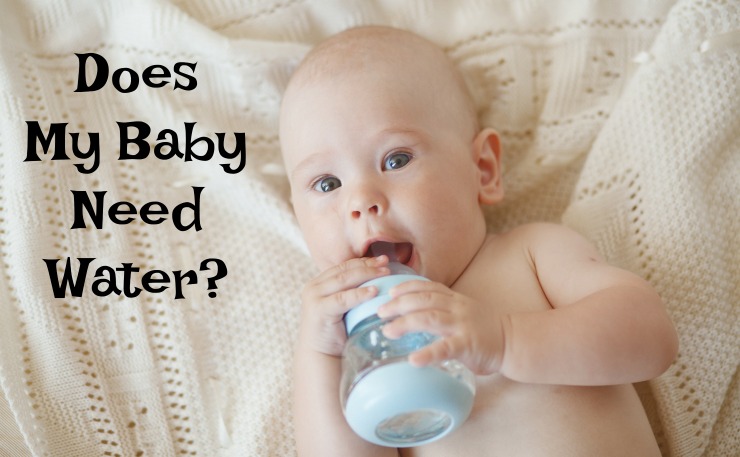Death of 10 Week-Old Baby Sparks Question: Should I Give My Baby Water?
May 20, 2015
- 1.1K
- 1.1Kshares
I recently read about the tragic death of a 10 week old infant in Georgia. This baby’s death has been covered by many different news sources as the story has caused much debate and now her parents have been charged with felonies. Sweet baby Neveah Landell died from water intoxication after her parents diluted her breastmilk with water. This poor emaciated baby was brought to the hospital already dead as her parents reportedly have a religious belief against medical intervention.
Despite this tragedy, I feel like the only way we can prevent Neveah’s death from being completely in vain is by making sure that parents are learning and growing. While I acknowledge that most of the reports about her death definitely indicate that her parents did play a role of neglect, I feel like this story has unearthed an incredibly common question to the public eye. I hear this question from new parents all the time: does my baby need water?
Does My Baby Need Water?
As adults, our requirement for water is very large, and we regularly find ourselves thirsty, so assuming babies fall into the same boat is a normal concern for many. But here’s what parents need to know…

Babies do NOT need water the same way adults do. In fact, babies should not be offered water until they are 6 months old. (Unless your healthcare provider instructs differently. Sometimes we do recommend a very small amount of water for constipated babies, but this should only be done under medical guidance.)
Why is this? Because babies need a regular intake of either breastmilk or formula! Babies have a constant demand for the calories in breastmilk and/or formula to grow. Especially in the first year of life, babies need to eat every 2-4 hours and occasionally even more frequently. Almost all parents understand that. But here’s a fact that many parent’s do not know: breastmilk is composed of 88% water. Obviously, formula is made with water. Breastmilk or formula has all the fluid that your baby needs! This is why breastmilk or formula is the exact combination of calories for growth and water for hydration.
Now, the next common question I hear, especially living in Arizona: “But Dani, what about when it’s hot outside?” I love the answer that KellyMom gives for this question:
“A number of research studies investigating the need for water in exclusively breastfed babies were done in various locations (both humid and dry) at temperatures ranging from 22-41°C (71.6-105.8°F) and 9-96% relative humidity; these studies concluded that exclusive breastfeeding provides all the fluids needed.”
What can happen if babies are given too much water?
This story presents the worst possible outcome. Water intoxication is the process that occurs when a baby is given too much water and the water then causes sodium (salt) dilution in the body. Sodium controls blood pressure, and our muscles and nerves depend on sodium to function correctly. When sodium becomes too diluted and too low, our cells try to compensate for it by swelling up. When this swelling happens to the brain cells, seizures, coma, brain damage and death can occur.
That’s worse case scenario. I know what you are thinking. Don’t panic about your toddler’s love for bath water! It’s truly babies under the age of 6 months that we need to be extremely delicate with when it comes to water intake. It’s also good to know that babies who are regularly given water tend to spit up frequently (remember a baby’s stomach is only about the size of an egg!) and they typically have a decreased appetite. Because there are no calories in water, babies given too much water usually start loosing weight as well.
So parents, here’s what we need to do with this information:
- Share. No baby needs to die this way. This tragedy is completely preventable. There are parents that don’t know or understand this information, so please share it. Let’s save lives.
- Weight checks are important! This is why the visits with your baby’s healthcare provider are so important, especially the first few months of life. If you ever feel like your baby is not growing or if you are concerned about weight gain, go to your healthcare provider! I love to make sure babies are growing appropriately!
- Breastfeeding mamas, have confidence in your body. Breastfeeding is one of the most challenging experiences ever. Period. But most moms can produce the perfect nutrients for their baby. You don’t need to give your baby additional water if you are exclusively breastfeeding. Carry on, brave heart!
- If you use formula for your baby, make sure you follow the instructions precisely. Some research shows up to 30% of families have ‘formula-stretched’ before. This is the process of diluting formula with more water than is recommended to try and make it last longer. This is dangerous for your baby and should not be done. If you do not have enough formula for your baby, reach out to your health care provider immediately so you can be connected with essential resources.
- When your baby is 6 months old, you can start offering water. However, the amount should not exceed approximately 2 ounces in a 24 hours period until after your child’s first birthday.
And let’s not forget to pray for these parents. Even though terrible mistakes were made, there is no pain imaginable like losing a child. Let’s take this story to heart and become better parents because of it.
Author: Dani Stringer, MSN, CPNP, PMHS – founder of KidNurse and MomNurse Academy
- 1.1K
- 1.1Kshares